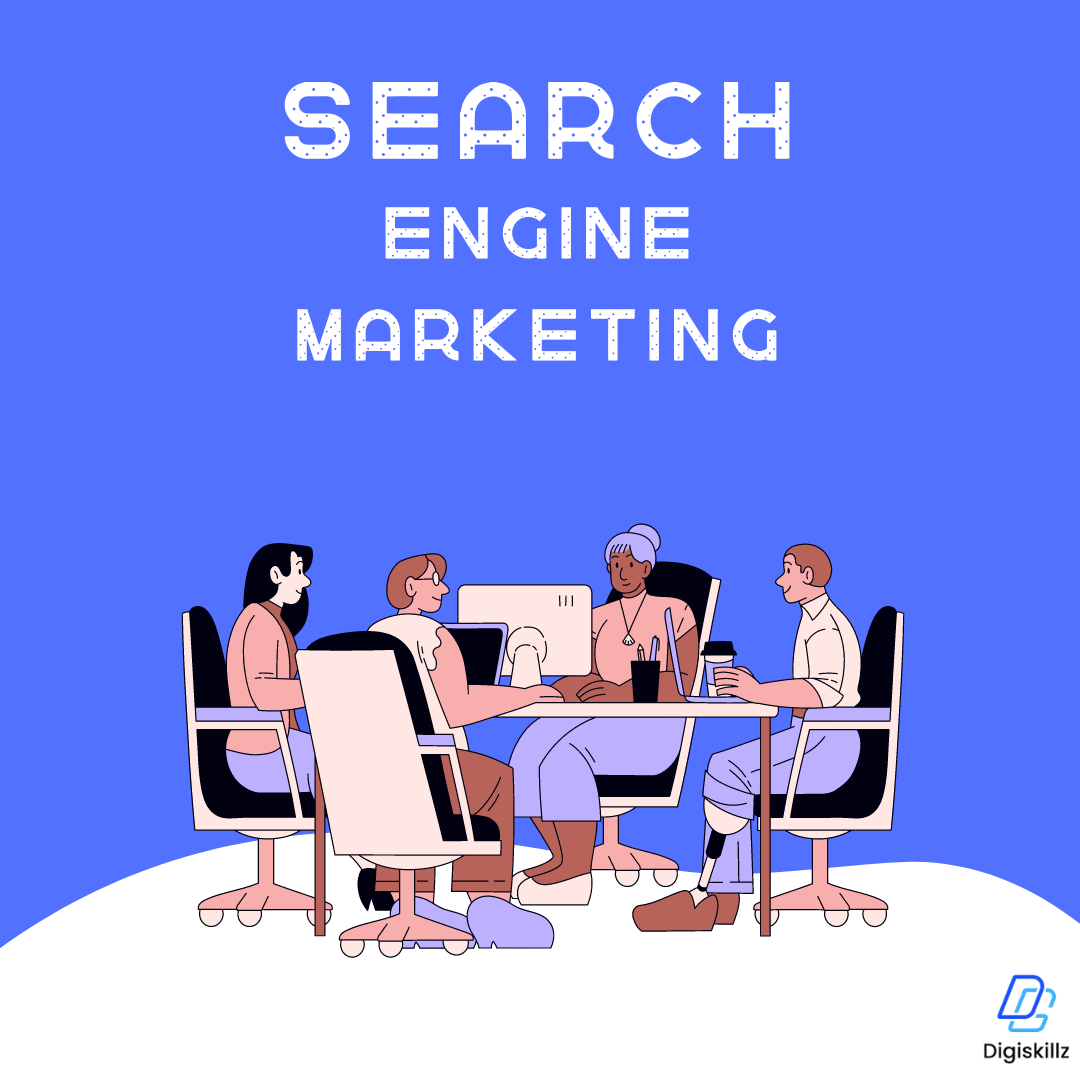Search engine marketing (SEM) is a strategy that involves running paid and targeted ads. That appears on search engines.Search engine marketing (SEM) is a digital marketing strategy used to increase the visibility of a website in search engine results pages (SERPs). Search engine marketing is a crucial aspect of digital marketing aimed at improving ranking and website visibility in search engine results pages (SERPs).Essentially, SEO involves optimizing various elements of a website, such as its content, HTML code, and structure, to make it more attractive to search engines like Google, Bing, and Yahoo.
Search engine marketing In Social media

Search Engine Marketing is However, SEO typically refers to internal, organic website optimization while search engine marketing is commonly known as advertising through a paid media budget.Search Engine Marketing (SEM) primarily refers to paid advertising efforts to promote websites and increase their visibility in search engine results pages (SERPs). Search Engine Marketing is commonly associated with search engines like Google and Bing, social media platforms also offer advertising options that align with Search Engine Marketing (SEM)principles.
What’s the difference between Search engine marketing & Social media marketing (SEO & SEM)

Search Engine Marketing ( SEM) and Search Engine Optimization( SEO) are two distinct strategies within digital marketing that aim to increase a website’s visibility in search engine results pages (SERPs), but they use different approaches. SEM &SEO two strategies are often confused.
SEO (Search Engine Optimization)
SEO is the process of optimizing a website for search engines. This includes improving the website’s content,on-page elements like titles and,metatags, structure and anchor text. Keywords Obviously,and competitor research are a huge part of your digital marketing campaigns too and SEO helps businesses attract organic traffic from search engines, but it’s a long game.
SEO is:
- Content-driven: keep writing high-quality, relevant content for users.
- Has no direct costs per click: no payment for clicks, but it requires continuous effort for optimization.
- Free: focus on optimizing your content with niche-specific keywords, you’ll attract organic and free visitors in time.
Based on user experience: This involves enhancing website usability and performance by improving technical SEO, like website structure and for a better user experience page loading times.
SEM is:
- Immediate Visibility:Ads can appear on search results pages as soon as the campaign is launched, providing immediate visibility to potential customers.
- Measurable Results: SEM platforms provide detailed metrics and analytics, allowing advertisers to track the performance of their campaigns in real-time.
- Flexibility and Control: Advertisers have control over their ad spend, targeting options, budgets, ad creatives, and campaign settings, customization to meet specific marketing objectives and allowing for flexibility.
- Cost-Effective:SEM operates on a pay-per-click (PPC) model, pay when someone clicks on their ad ,meaning advertisers only, making it a cost-effective advertising option compared to traditional forms of advertising like print or TV.
How Search Engine Marketing Works
SEM works by placing ads on search engine results pages (SERPs) and paying for clicks on those ads.
- Keyword Research
- Ad Creation
- Ad Ranking
- Ad Placement
- User Clicks
- Cost-Per-Click (CPC)
Keywords and SEM
Keywords are an integral part of SEM.
- Here’s what else to consider.
- Conduct keyword research.
- Create and test different ad variations.
- Optimize your landing pages.
- Monitor and analyze your SEM performance.
- Implement and repeat the optimization and testing cycle.
- Define your goals.
How to Build a Search Engine Marketing Strategy
- identify your target audience, demographics, and goals.
- create a budget and set realistic expectations.
- Use keyword research to determine relevant keywords for your business.
- craft your adverts.
- Think beyond your ads
- track your SEM marketing efforts.
SEM” stands for Search Engine Marketing.digital marketing that involves promoting websites by increasing their visibility in search engine results pages (SERPs) primarily through paid advertising. Search engine marketing takes the form of responsive, service ads and Google shopping




